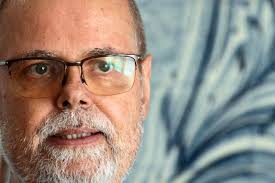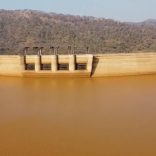Mozambique: Environmental impact of mining will take time to heal in Manica province - National ...
Cyclone Idai: Devastating event may lead to rebirth, says Archbishop of Beira

Photo: Lusa
The Archbishop of Beira says that the passage of Cyclone Idai through the region was a “sad” and “devastating” event, but that “it could become an opportunity for growth”. He also warned that it was necessary to help the population improve the quality of housing by building safer structures.
The archbishop of Beira, Claudio Dalla Zuanna, told Lusa on Friday that Cyclone Idai was a devastating event but could lead to a rebirth in central Mozambique.
“This misfortune can become an opportunity for growth. It’s like someone who sows seed to grow food: it looks like waste, throwing it on the ground, but it’s the beginning of new life.”
“We can come out of this event – so sad, so devastating – with renewed energy. It can be a time of rebirth,” the Catholic archbishop said.
However, he warned, it was necessary to help the population build safer homes and other structures.
“We should bear in mind the experience of other countries that go through these natural calamities,” he said, calling for “smarter reconstruction” as opposed to the usual makeshift homes.
The most common building materials are zinc sheets and wooden beams, with raw clay bricks (adobe) and grass or, when financially viable, bricks made of some cement mixture.
Despite the gale and floods, residents of Sofala and Manica are trying to reclaim their lives by rebuilding to the same formula, even though new storms of the same ferocity might arise.
The priority is to revive the ‘machambas’ (vegetable gardens), so as to have enough food, and people have told Lusa that they are trying to rebuild their houses with the same materials within just a week or two.
Poverty sets the terms for residents’ options, Archbishop Zuana notes.
“This may happen again. It may be that these are clear signs of climate change on the planet. This cyclone was very different from others because it was formed here, in the Mozambique Channel, between the coast and the island of Madagascar, and not in the open sea.”
And even though it was formed in the channel, [Idai] “managed to reach this intensity” he said, referring to Idai’s Category 5 status.
“It is a serious signal” for a population that “suffers every day”, but whose suffering is only visible to the rest of the world during and after events such as Cyclone Idai, the archbishop said.
“Life is very difficult. Most people have no source of support, no work. The minimum wage, for those lucky enough to have a job, is around 80 euros. With this you cannot live or do great things” such as “putting your children through school”, he admits.
“Those who are fortunate to have steady paid work” among a population “accustomed to suffering” are few.
Cyclone Idai, which hit Mozambique on March 14, was “a source of vast suffering inflicted on a lot of people within a few hours. However, each person tries to react with a capacity for resilience that the whole of Africa generally possesses”, and that derives from a context of a permanently “difficult life”.
A resilience valued by Claudio Dalla Zuana, as opposed to fatalism. The population is not “driven to despair, however great the difficulties may be”.
“The Meteorological Institute issued warnings, but the people could not do anything to protect their homes. You cannot stop the wind with your hands and, with the precariousness of the houses, the structures, there was not much to be done,” he says, referring to the days leading up to the storm.
The dead, whose official count is about 600 in Mozambique, were mostly washed away by the floods and did not receive a dignified burial. But in these moments, “the strength of solidarity helps lend dignity”, not only to family members but also among neighbours who are relied upon for preparations at funerals.
“I did not see signs of despair among the people. They feel very sad about what happened, but there is no despair. There is just a desire to start over.”












Leave a Reply
Be the First to Comment!
You must be logged in to post a comment.
You must be logged in to post a comment.